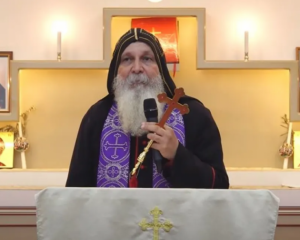An Australian family who moved to rural Scotland four years ago during a drive to attract people to live in depopulated areas now fears deportation under new UK rules designed to curb immigration.
The Brains were meeting Scottish First Minister Nicola Sturgeon to discuss the rules after she wrote to Home Secretary Theresa May asking her to reconsider the deportation.
Gregg and Kathryn Brain arrived in 2011 attracted by the Scottish government's Highland Homecoming plan backed by the British Home Office to boost a shrinking population in northern Scotland.
The Brains both have Scottish ancestry and their seven-year-old son Lachlan has been learning Scotland's Gaelic language at school in Dingwall.
But the Home Office closed the scheme retrospectively in 2012 meaning the Brains now require a different visa to stay, rather than a post-study work visa they'd been anticipating.
The British government this week said the family faced no "imminent risk of immediate deportation" from Scotland to Australia and they could apply for a tier two skilled work visa.
Mr Brain is a health and safety expert and Ms Brain, who arrived on a student visa, has just completed a degree in Scottish history.
Mr Brain told the Guardian newspaper they had been "absolutely humbled" by the local Highland community's support.
"We have been overwhelmed by the response and it just reinforced our belief that this is the community where we want to bring up our son."
Immigration Minister James Brokenshire this week offered assurances in parliament over the future of the family and was to discuss the case further with Scottish National Party (SNP) MP Ian Blackford on Thursday.
He said he had twice extended the time available for the Brains to secure the necessary permission for them to remain in the country.
"We've not yet received an application from the Brain family for leave to remain under the points-based system but we will consider any application they make," he said.
The Brains had been seeking a job offer that would qualify for the tier two visa until their right to work was removed in mid-March.
Mr Brain said meeting the strict requirements for a tier two skilled work visa was "extraordinarily hard to do" and required an employer willing to invest time and money in sponsorship.
He said his son was doing well in school but had only been taught in Gaelic "because we thought we would be staying and jumped at the chance of bilingual teaching".












